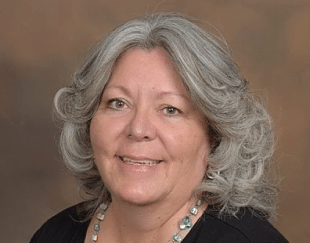Andrea Spaulding, RN, RHIT, CTR serves as Project Manager for the Registry Partners Oncology Division.
Prior to joining Registry Partners, Andrea worked for HCA/HealthOne in Denver, CO as the Director of Registries. She managed seven acute care hospital cancer registries, five of which received their accreditation from the National Accreditation Program for Breast Centers (NAPBC) with a sixth seeking accreditation, while one of the facilities was the first hospital in Colorado to receive the Outstanding Achievement Award for three consecutive surveys. Andrea also worked for a consulting firm as Director of Registries where she managed cancer, trauma and stroke registries.
Andrea earned her Associates of Science in Health Information and became certified as a Registered Health Information Technician (RHIT) and Certified Tumor Registrar (CTR). Additionally she earned her Bachelor of Science in Nursing degree and subsequently became a Registered Nurse (RN).
Andrea is a member of the National Cancer Registrars Association (NCRA) and the Colorado Cancer Registrars Association.
Andrea resides in Colorado with her husband and dog and they have two daughters and two grandchildren. She enjoys spending time with her family, camping and relaxing at home working in the yard.
Q & A with Andrea:
Q: There have been many changes implemented throughout your cancer registry career. What advice can you share on how best to deal with change when it occurs in the registry profession?
A: My advice would be to make sure you attend as many educational events as possible. Also, make sure you are on the email lists for the standard setters as this is a great way to see what is coming. Many state registries have free or low cost education that is accessible to almost anyone as long as you are a member of their association. Our profession is ever changing and education is the key. As identification of cancer types and treatments continue to change, our cancer registry data will change. To make sure we are collecting meaningful information, we must make sure we are educated on how the information is to be collected.
Q: What is the recommendation you most often share with the cancer committee membership?
A: I believe most all cancer programs are doing a great job, the problems that I find most are documentation and participation. Documentation is huge! Your minutes show what your program has completed during the survey cycle and if it is not documented, then how do you know it was completed? A surveyor should be able to look at your minutes and know pretty much what was discussed. Another factor is participation, one person cannot do it all, it takes a team. I believe having an engaged physician leader and educating each of the members on their part of the process helps with the minutes as they then have a stake in what is presented and documented.
Q: Why do you believe clinical data registries are so important?
A: Clinical data registries are so important because they show the trends in occurrences, treatments, mortality and survival. There are too many benefits to list when having clinical data registries, although a few would be that they help clinicians decide what is working and what is not. It also helps assess if there is an increase in incidence and evaluate potential causes. As the data needs grow, there will be more specialized registries to collect meaningful data for any disease site or health concern interest.





